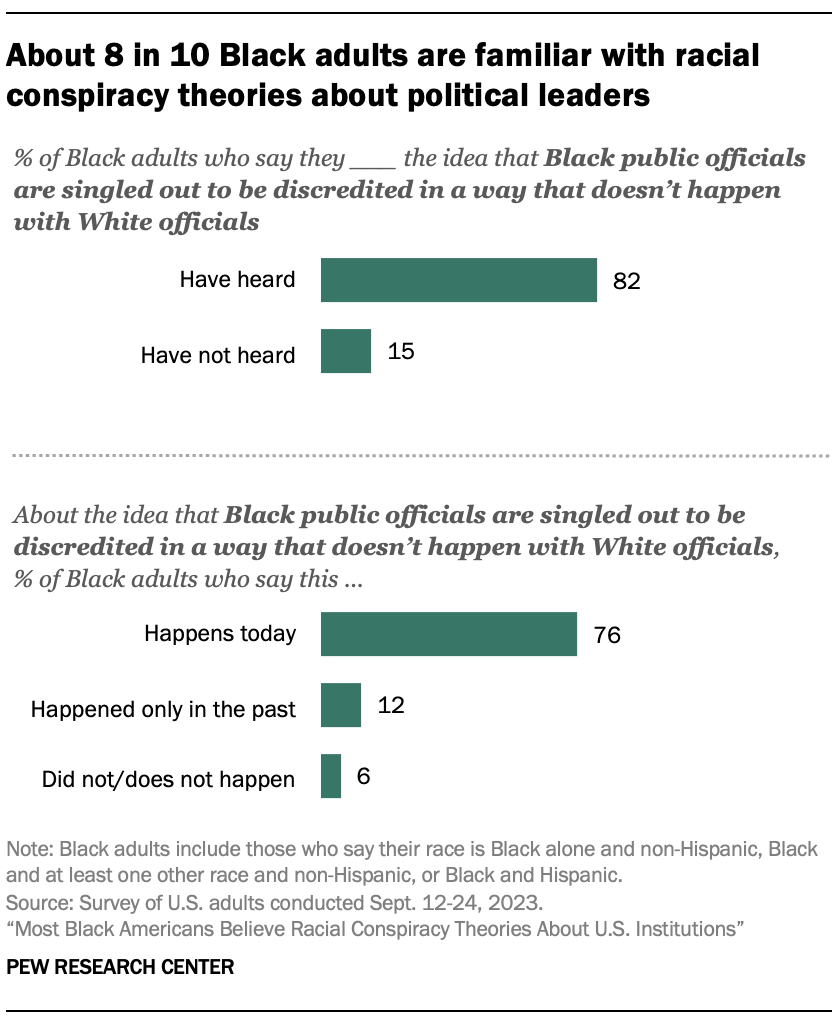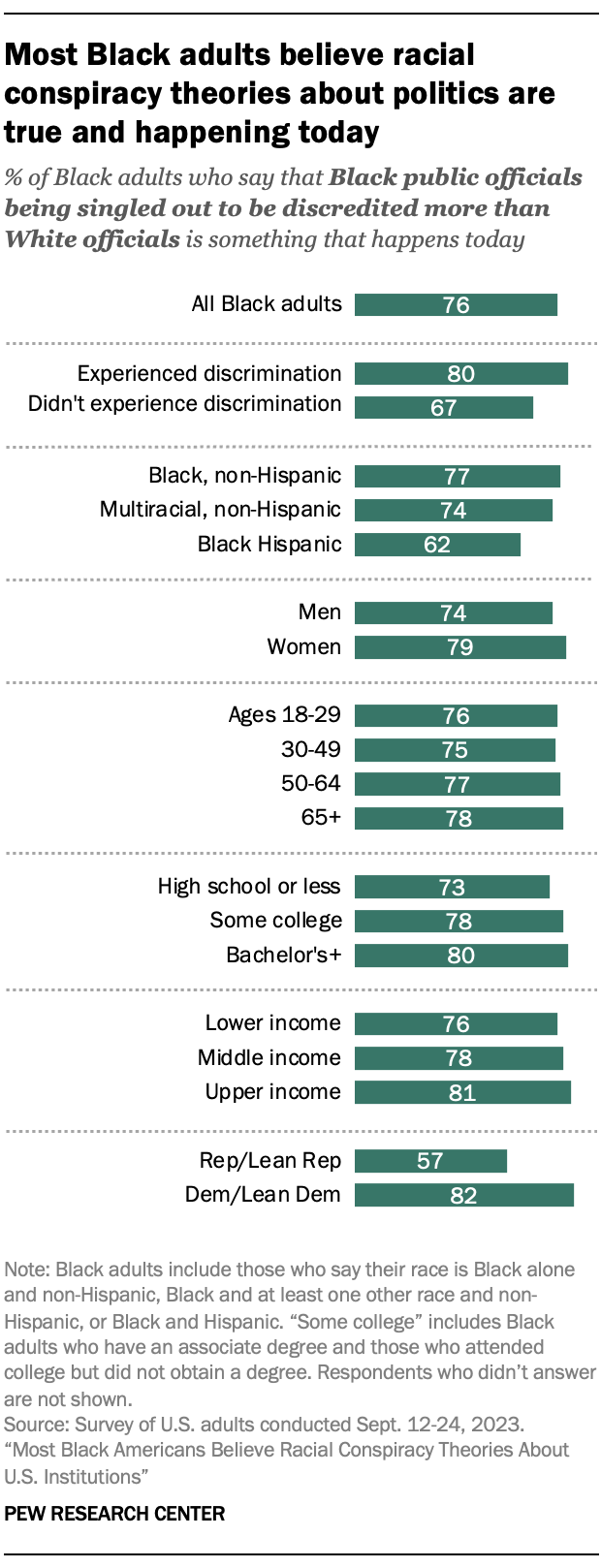Racial conspiracy theories about politics have their roots in well-known events involving Black political leaders. Declassified memos show how Martin Luther King Jr. was viewed by the FBI as an “effective” and “dangerous” leader who should be “neutralized.” And a letter attributed to a former New York City police officer suggests there were federal and local conspiracies to discredit Malcolm X and his organization.
This history of surveillance of Black leaders provides context for how Black Americans view racial conspiracy theories about politics.
Many Black Americans believe the political system was designed to hold them back
Two-thirds of Black Americans (67%) say the political system was designed to hold Black people back a great deal or fair amount. Smaller shares say it only holds Black people back somewhat (20%) or does not hold them back much, if at all (11%).
Black adults who have experienced racial discrimination (72%) are more likely than those who haven’t (54%) to say the political system was designed to significantly hold Black people back. And while about seven-in-ten Black adults who are non-Hispanic or multiracial say the same, fewer Hispanic Black adults agree (53%).
By gender
Black women (71%) are more likely than Black men (64%) to say the political system was designed to significantly hold Black people back. However, age also factors into this. Black women under 50 (73%) are more likely than Black men of the same age group (60%) to say this. They are also slightly more likely than Black women 50 and older to agree (68%).
By education, family income and party
Education and income also play a role in how Black Americans think about the political system. About seven-in-ten Black adults with a bachelor’s degree (72%) say the political system was designed to hold Black people back a great deal or fair amount. Black adults with a high school diploma or less education (60%) are less likely to say the same. And Black adults with upper incomes (74%) are the most likely among the income groups to say the political system intentionally holds Black people back.
Black Democrats (71%) and Republicans (57%) also differ significantly on this question.
Familiarity with and belief in racial conspiracy theories about political leaders
Aside from believing the political system was set up for their failure, many Black Americans are also familiar with racial conspiracy theories about political leaders.

About eight-in-ten Black adults (82%) say they have heard the idea that Black public officials are singled out and discredited in a way that doesn’t happen with White public officials. Only 15% of Black Americans say they have not heard of this idea at all.
By age and ethnicity
Some groups of Black Americans are more familiar with these ideas than others. Black adults ages 65 and older (85%) are slightly more like than those 50 to 64 (81%) to have heard that Black officials are singled out more than White officials. And the share of non-Hispanic Black adults (84%) who have heard of this idea outpaces that of both multiracial (75%) and Hispanic Black adults (71%).
Belief in racial conspiracy theories about political leaders
About three-quarters of Black Americans (76%) believe that Black officials are singled out and discredited more than White officials and that this is happening today. Much smaller shares say this is something that happened in the past but doesn’t happen today (12%) or that it has never happened (6%).
By discrimination experience and ethnicity

Eight-in-ten Black adults who have experienced racial discrimination believe the racial conspiracy theory that Black officials are singled out more than White officials. The share is smaller is among those who haven’t experienced discrimination (67%). And about 75% of non-Hispanic and multiracial Black adults also believe this racial disparity in how leaders are treated is happening today. Fewer Hispanic Black adults say the same (62%).
By gender, party and education
Overall, Black women (79%) are slightly more likely than Black men (74%) to say Black leaders are singled out unfairly today. More specifically, Black men under 50 (72%) are less likely than women of any age to say this.
Black Democrats (82%) are significantly more likely than Black Republicans (57%) to say Black leaders are treated unfairly today. And Black adults with a bachelor’s degree (80%) outpace those with a high school diploma (73%) on this question.




